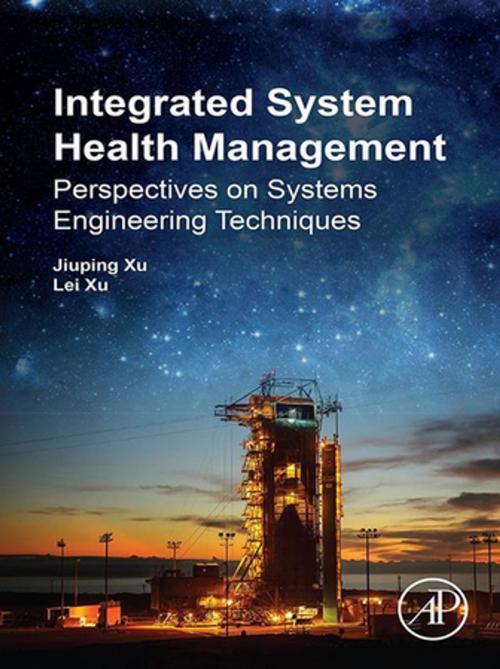Integrated System Health Management
Perspectives on Systems Engineering Techniques
Nonfiction, Science & Nature, Technology, Engineering, Mechanical| Author: | Jiuping Xu, Lei Xu | ISBN: | 9780128132685 |
| Publisher: | Elsevier Science | Publication: | May 18, 2017 |
| Imprint: | Academic Press | Language: | English |
| Author: | Jiuping Xu, Lei Xu |
| ISBN: | 9780128132685 |
| Publisher: | Elsevier Science |
| Publication: | May 18, 2017 |
| Imprint: | Academic Press |
| Language: | English |
ISHM is an innovative combination of technologies and methods that offers solutions to the reliability problems caused by increased complexities in design, manufacture, use conditions, and maintenance. Its key strength is in the successful integration of reliability (quantitative estimation of successful operation or failure), "diagnosibility" (ability to determine the fault source), and maintainability (how to maintain the performance of a system in operation). It draws on engineering issues such as advanced sensor monitoring, redundancy management, probabilistic reliability theory, artificial intelligence for diagnostics and prognostics, and formal validation methods, but also "quasi-technical" techniques and disciplines such as quality assurance, systems architecture and engineering, knowledge capture, information fusion, testability and maintainability, and human factors.
This groundbreaking book defines and explains this new discipline, providing frameworks and methodologies for implementation and further research. Each chapter includes experiments, numerical examples, simulations and case studies. It is the ideal guide to this crucial topic for professionals or researchers in aerospace systems, systems engineering, production engineering, and reliability engineering.
- Solves prognostic information selection and decision-level information fusion issues
- Presents integrated evaluation methodologies for complex aerospace system health conditions and software system reliability assessment
- Proposes a framework to perform fault diagnostics with a distributed intelligent agent system and a data mining approach for multistate systems
- Explains prognostic methods that combine both the qualitative system running state prognostics and the quantitative remaining useful life prediction
ISHM is an innovative combination of technologies and methods that offers solutions to the reliability problems caused by increased complexities in design, manufacture, use conditions, and maintenance. Its key strength is in the successful integration of reliability (quantitative estimation of successful operation or failure), "diagnosibility" (ability to determine the fault source), and maintainability (how to maintain the performance of a system in operation). It draws on engineering issues such as advanced sensor monitoring, redundancy management, probabilistic reliability theory, artificial intelligence for diagnostics and prognostics, and formal validation methods, but also "quasi-technical" techniques and disciplines such as quality assurance, systems architecture and engineering, knowledge capture, information fusion, testability and maintainability, and human factors.
This groundbreaking book defines and explains this new discipline, providing frameworks and methodologies for implementation and further research. Each chapter includes experiments, numerical examples, simulations and case studies. It is the ideal guide to this crucial topic for professionals or researchers in aerospace systems, systems engineering, production engineering, and reliability engineering.
- Solves prognostic information selection and decision-level information fusion issues
- Presents integrated evaluation methodologies for complex aerospace system health conditions and software system reliability assessment
- Proposes a framework to perform fault diagnostics with a distributed intelligent agent system and a data mining approach for multistate systems
- Explains prognostic methods that combine both the qualitative system running state prognostics and the quantitative remaining useful life prediction















